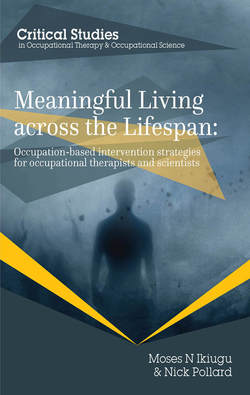Читать книгу Meaningful Living Across the Lifespan - Moses N. Ikiugu - Страница 18
На сайте Литреса книга снята с продажи.
Victor Frankl
ОглавлениеBefore making any attempt to explore how various daily occupations can be used in meaning-making, in this chapter we will discuss in general the notion of meaning itself. In this regard, we begin with an examination of the work of Viktor Frankl. This charismatic psychotherapist became known for his work on the meaning of human life. He began working as a youth counsellor and as a doctor in the 1920s in a Viennese hospital department that catered for women suicide survivors. His experiences, and particularly those under the Nazi regime while he was living in the Theresienstadt ghetto and then during a period of incarceration in a series of concentration camps, became the basis for his work on the human search for meaning as the major motivator in life. These ideas led to the development of logotherapy, an intervention designed to combat meaninglessness and nihilism. According to Pytell (2007, 2000), Frankl’s first book was dictated in 9 days, yet the uplifting messages it contained turned it into a best seller. Frankl’s story was that he survived the horrors of the Nazi concentration camps because he had something to look forward to, a goal for which to survive. Consequently, in logotherapy, he suggested that humankind can overcome its worst fears (as he did) if only ‘each of us does his best’ to pursue a worthy goal in life (Frankl, 1992, p. 154). This is the basis for our recommendation in chapter 7 that people articulate personal mission statements clearly, so that these personal missions in life can be the basis for establishment of worthwhile goals to pursue in life, leading to a meaningful existence.
